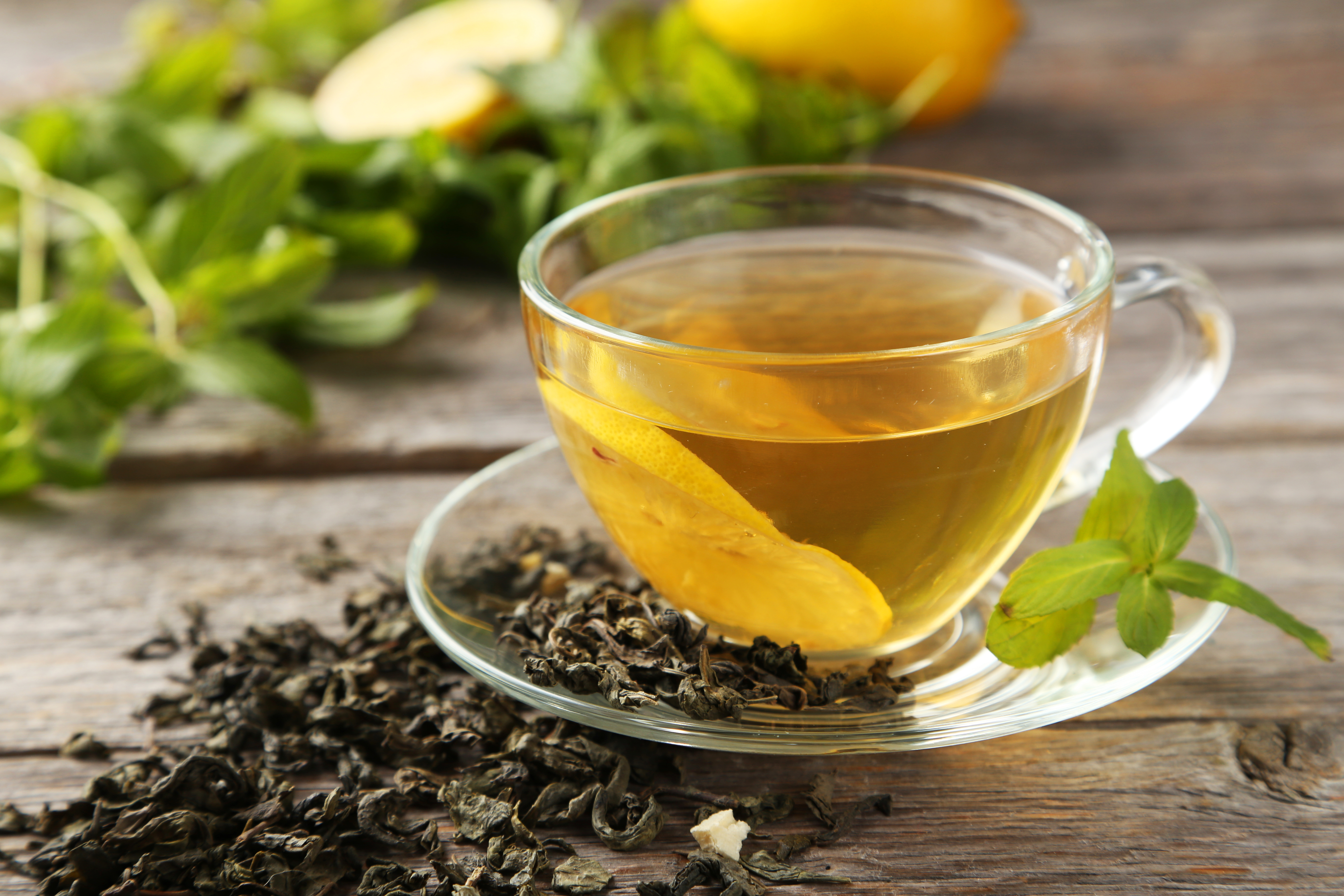Blog
Functional Food Super Hero #9 Green Tea
 Pop on the kettle, would you love? These words are familiar to many from childhood, albeit from Nan at the kitchen table with freshly baked shortbread, or words emanating from an 80s BBC sitcom.
Pop on the kettle, would you love? These words are familiar to many from childhood, albeit from Nan at the kitchen table with freshly baked shortbread, or words emanating from an 80s BBC sitcom.
Whilst black tea varieties have been the hot beverage of choice, there is much power to be found in herbal alternatives. And green tea really packs a punch.
Green tea is less processed than its black tea brother, meaning more polyphenols remain to work their health supportive magic.
Throughout Chinese and Japanese history, green tea is been long revered. And not surprisingly – it is quite possibly the most amazing drink on earth!
Is there anything green tea can’t do?
Green tea has become increasingly popular in modern culture for several years. Possibly because it somehow manages to be comforting, cleansing and clarifying all at once!
Anti-carcinogenic, anti-inflammatory and blood glucose mediator
Green tea contains high amounts of antioxidants due to the flavanol and tannin content. Studies have shown the polyphenol epigallocatechin gallate (a flavanol) contained within green tea may assist in inhibiting cancer cell proliferation in various cancers. This is likely due to its powerful antioxidant activity.1
It also acts as an anti-histamine, is anti-inflammatory and has ben found to mimic the action on insulin! This means it may assist in lowering blood glucose. Whoa!4
Loves your liver
Green tea assists detoxification processes by your liver – especially alcohol! It can help slow the 1st phase of the detoxification process, to allow time for your liver to properly metabolise the compounds and toxins filtering through, before sending them through to the 2nd phase of detoxification.
This is important, as the compounds formed post phase 1 and pre phase 2 can be pretty darn toxic, so we don’t want them lingering, waiting for the phase 2 channels to clear up for them to be processed (and made ready for excretion).
Finding Zen
Green tea has a wonderfully calming effect on the nervous system, largely due to the constituent L-theanine, acting to boost inhibitory neurotransmitter activity and inhibit activity of excitatory neurotransmitters, and may even modulate serotonin and dopamine, whilst simultaneously offering a small dose of caffeine to bring clarity of mind.2;3;5;6
Even aside from what green contains, the act of taking 5minutes to make a brew, and better yet, taking a few minute to sit presently and sip it, is wonderfully therapeutic, beating any fancy exotic super food in boosting health. De-stressing is critical to help your body function at its best!
Other amazing green tea qualities include:
- The relaxing effect on smooth muscle of lung airways due to the metabolite theophylline, a pure alkaloid
- May help to prevent food poisoning due to antibacterial and antiviral properties.
So get brewing!
Fortunately green tea widely available and needn’t cost the earth. Ideally it is steeped in water heated to 80 degrees Celsius; hotter than that and some of the fabulous qualities begin to disintegrate.
We recommend buying high quality, organic and fair trade where possible. By using higher quality leaves, you can re-use them over several brews!
Green tea is also surprisingly versatile! It can be added to desserts, used for home made iced tea (stay AWAY from the store bought, sugar laden stuff) and replace your morning coffee or 3pm Snickers bar!
So get your brew on, and enjoy (with no sugar required).
References:
- Chung S., Y, & Xin, W 2010, ‘Green Tea and Cancer Prevention’, Nutrition & Cancer, vol. 62, no. 7, pp. 931-937.
- Kimura, K, Ozeki, M, Juneja, LR, & Ohira, H 2007, ‘l-Theanine reduces psychological and physiological stress responses’, Biological Psychology, vol. 74, pp. 39-45.
- Lardner, AL 2014, ‘Neurobiological effects of the green tea constituent theanine and its potential role in the treatment of psychiatric and neurodegenerative disorders’, Nutritional Neuroscience, vol. 17, no. 4, pp. 145-155.
- Liu, K, Zhou, R, Wang, B, Chen, K, Shi, L, Zhu, J, & Mi, M 2013, ‘Effect of green tea on glucose control and insulin sensitivity: a meta-analysis of 17 randomized controlled trials’, The American Journal Of Clinical Nutrition, vol. 98, no. 2, pp. 340-348.
- Mirza, B, Ikram, H, Bilgrami, S, Haleem, DJ, & Haleem, MA 2013, ‘Neurochemical and behavioral effects of green tea (Camellia sinensis): a model study’, Pakistan Journal Of Pharmaceutical Sciences, vol. 26, no. 3, pp. 511-516.
- Nobre, AC, Rao, A, & Owen, GN 2008, ‘L-theanine, a natural constituent in tea, and its effect on mental state’, Asia Pacific Journal Of Clinical Nutrition, vol. 17 Suppl 1, pp. 167-168.











